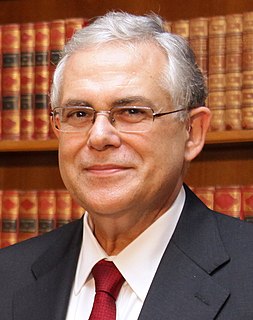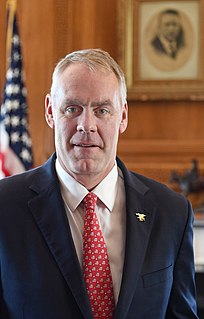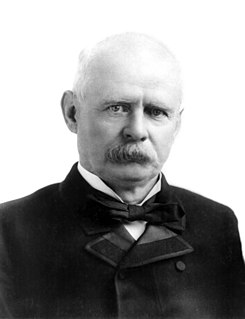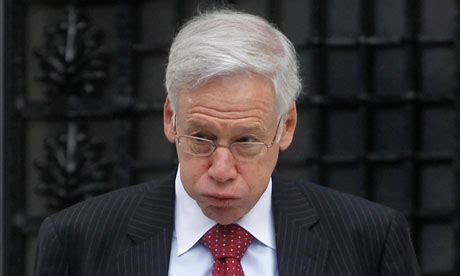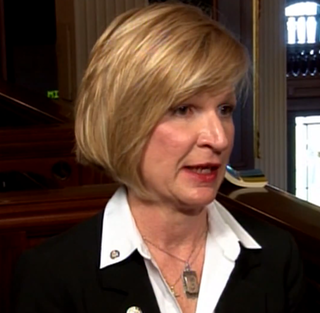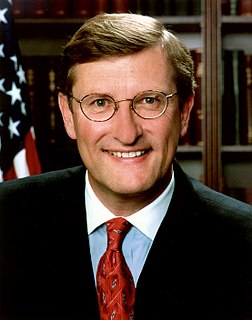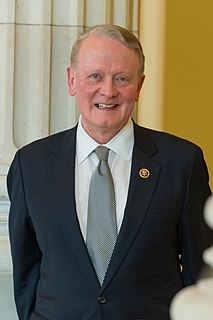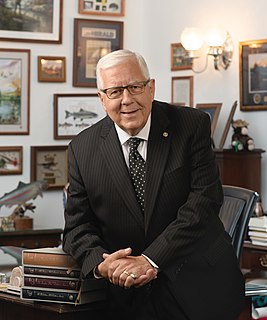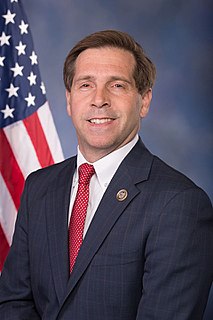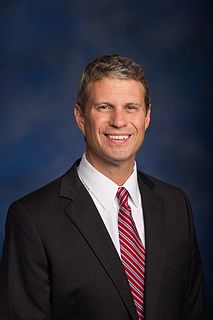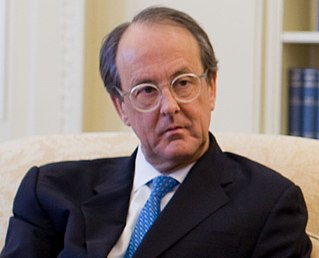Top 1200 Fiscal Policy Quotes & Sayings - Page 10
Explore popular Fiscal Policy quotes.
Last updated on December 19, 2024.
If the Federal Reserve pursues a policy which Congress or the President believes not to be in the public interest, there is nothing Congress can do to reverse the policy. Nor is there anything the people can do. Such bastions of unaccountable power are undemocratic. The Federal Reserve System must be reformed, so that it is answerable to the elected representatives of the people.
Obama has always been, while President, has been close to the Queen of England, and the Queen of England has a standing policy now, which has been going on for some time, saying that we have to reduce the human population, on this planet, from 7 billion people down to less than 1! That is her avowed policy.
In the United States, one of the main topics of academic political science is the study of attitudes and policy and their correlation. The study of attitudes is reasonably easy in the United States: heavily-polled society, pretty serious and accurate polls, and policy you can see, and you can compare them.
You [Jill Stein] also believe in a full employment policy that was the majority Democratic Party policy in 1946. They actually passed a law to that effect. You want to end poverty and when people see how relatively easy it is to end poverty. And one way is to increase the minimum wage: catch up; it's been frozen for so many years.
Because we aren't certain about the effects of GMOs, we must consider one of the guiding principles in science, the precautionary principle. Under this principle, if a policy or action could harm human health or the environment, we must not proceed until we know for sure what the impact will be. And it is up to those proposing the action or policy to prove that it is not harmful.
The arts, instead of quaking along the periphery of our policy concerns, must push boldly into the core of policy. The arts are a response to our individuality and our nature and help to shape our identity. The arts are not a frill and should not be treated as such. They have the potential to become the driving force for healing division and divisiveness.
The fact that some former national security officials challenge the policy wisdom of the order, while other national security officials - most notably those of this [Donald Trump's] administration - support it, merely demonstrates that these are policy disputes that the judiciary is both ill-equipped and constitutionally barred from arbitrating.
The major economic policy challenges facing the nation today - pick your favorites among the usual suspects of low public and household savings, concerns about educational quality and achievement, high and rising income inequality, the large imbalances between our social insurance commitments and resources - are not about monetary policy.
Foreign policy is now a huge field. It isn't just people who are studying political science. There are so many aspects to it in terms of understanding hard science for people who are studying climate change, or people who are interested in health policy or food security, or people who care about education.
We need to move forward, from the common currency to the banking union to a common financial policy and, in the middle-term, to a common foreign and security policy. That will take time, because we need to figure out how to deal with those countries that don't always want a more tightly integrated European Union.
In fact, five years ago, after Saddam ejected the UN inspectors, John McCain and I gave up on containment and introduced the Iraqi Liberation Act, which, when it became law, made a change of regime in Baghdad official US policy. You might therefore say that, when it comes to Iraq, President Bush is just enforcing the McCain-Lieberman policy.
I think Hillary Clinton is more suspicious, clearly tougher on Russian policy in Ukraine, Georgia, Syria; more willing to support sanctions; not against negotiating with Putin, but I would say tougher and more skeptical. And Donald Trump has talked about revisiting policy towards Ukraine, revisiting policy about sanctions towards Russia, not as quick to criticize Putin for what he might be up to in Syria and propping up the regime there - so just seems to be more open to the possibilities of working out some kind of a - I guess you'd call a modus vivendi with Putin.
Hillary Clinton's Russian re-set policy gave Moscow permission to go from privately challenging U.S. foreign policy to publicly moving military hardware into Syria to prop up Bashar al-Assad and annexing Crimea from Ukraine. And Donald Trump seems to support the idea that Putin will be Putin. It's enough to leave America's allies confused.
We welcome the Obama administration's policy called the 'pivot to Asia' because it is a contributing factor to the safety and peace of the region. I think this pivot policy is playing an indispensable role in enhancing the deterrence of the U.S.-Japan alliance as well as ensuring peace and security in the Asia-Pacific region.
The American people are a non-ideological people. They very much are looking for common-sense, practical solutions to the problems that they face. Oftentimes they've got contradictory senses of various issues and policy positions and I don't think that either the Republican Party or the Democratic Party necessarily capture their deepest dreams when those parties are described in caricature or in policy terms.
When I got to MIT, I discovered a really interesting Master's program called the Science and Technology and Policy Program - it taught people with a background in STEM how to think about science and tech from a policy perspective. It was a great way to understand how to communicate science to a policymaker or a layperson.
There are those who would draw a sharp line between power politics and a principled foreign policy based on values. This polarized view - you are either a realist or devoted to norms and values - may be just fine in academic debate, but it is a disaster for American foreign policy. American values are universal.
